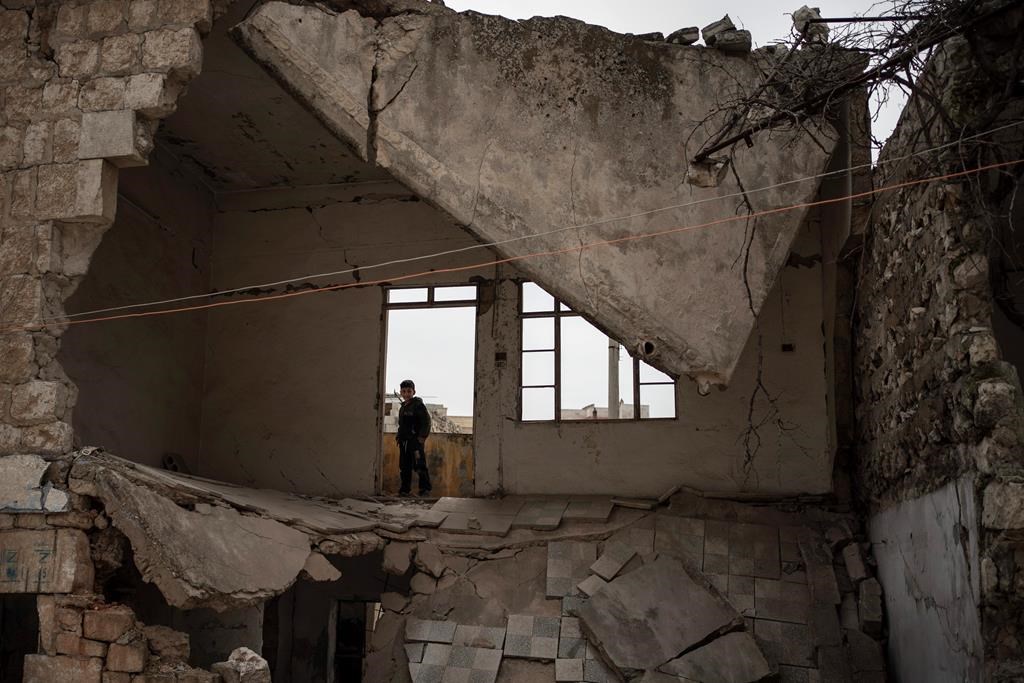The trial of a Halifax businessman accused of violating Canada’s regime of economic sanctions in Syria came to an abrupt end in January as the Crown declined to offer any evidence.

It was supposed to be the first time anyone went to trial under Canada’s economic sanctions regime. An expert says the anti-climactic end of the trial reveals just how ineffective the laws are.
“One thing we have to seriously ask is, are these paper tigers or sanctions?” said Michael Nesbitt, an associate professor of law at the University of Calgary.

First to face trial under SEMA
Nader Kalai was the first person to ever face trial over allegedly breaching Canada’s regime of economic sanctions, known as the Special Economic Measures Act (SEMA).
Before Kalai, a Syrian national with permanent resident status in Canada, only one person has ever been prosecuted under SEMA since it was introduced in 1992. Yet that case ended in a plea deal before it went to trial.
Canada established sanctions against Syria in 2011 after the country’s president, Bashar al-Assad, violently cracked down on peaceful protesters.
Kalai was accused of violating the measures imposed on Syria by making a payment of 15 million Syrian pounds — the equivalent of approximately C$140,000 — to a company called Syrialink on Nov. 27, 2013.
According to court documents reviewed by Global News, a statement sworn by a Canadian Border Services Agency (CBSA) investigator outlined a two-year-long investigation into Kalai that began after an intelligence officer received information that Kalai was in business with individuals associated with the Syrian regime.
CBSA claimed that Kalai had made false statements to Citizenship and Immigration Canada about his work history and was improperly granted a Canadian Permanent Resident Card.
If he had been convicted, Kalai would’ve faced up to five years in prison.
But at the opening of the trial in December, federal Crown prosecutor David Schermbrucker told the judge he would be calling no evidence and asked that Kalai be acquitted.
The acquittal was granted by Justice John Bodurtha moments later.
It all falls apart
The Crown’s decision to present no evidence was the result of an earlier ruling by Bodurtha on the admissibility of documents the Crown hoped to introduce at trial.
The documents, recovered from a computer in Kalai’s home in 2016, were supposed to be used as evidence supporting the Crown’s allegation that Kalai had made the payment to SyriaLink.
But defence counsel argued the Crown had not proven that Kalai could be tied to the documents.
The judge would end up agreeing with the defence’s arguments.
“I find that the documents have been authenticated by the Crown and are admissible as documents in possession but not for the truth of their contents,” Bodurtha wrote in his decision.
“The Crown has produced little or no evidence in support of the documents being admitted for the truth of their contents.”
Nesbitt says the fact the Crown’s case fell apart due to a failure to admit what was basically circumstantial evidence means the case was quite thin to begin with.
Even if the documents were submitted, Nesbitt said, it seems unlikely that they would be enough to convict Kalai beyond a reasonable doubt.
“The lack of other evidence means that … you would have to admit this to show that essentially the transactions actually took place and they found no evidence of that,” he told Global News.
Global News asked the Public Prosecution Service (PPSC) of Canada why its case heavily relied on circumstantial evidence.

Nathalie Houle, a spokesperson for the PPSC, didn’t directly respond to the question in a statement but outlined that the service’s decision to go to trial is based on whether there is any reasonable prospect of conviction and whether it best serves the public interest.
“As was the case here, a ruling that certain evidence is inadmissible may materially diminish the prospects of conviction,” Houle said.
A request for comment from Nader Kalai’s lawyer went unanswered.
Canada reliant on allied intelligence agencies
Nesbitt offers another theory about why the Crown’s case against Kalai was so weak and why so few have been prosecuted under SEMA.
“A number of our cases in the national security realm seem to have been seeded in some way by foreign intelligence agencies,” he said.
“Which is to say, the original information we got or what turned us on to someone was at least in part influenced by what we were getting from someone else.”
Even before Kalai’s case was brought to trial, he was already on the radar of intelligence agencies of Canada’s allies.
In January 2018, the European Union (EU) accused Kalai of violating its economic sanctions on Syria and he was added to a list of individuals and companies that have had their assets frozen and a travel ban applied due to their dealings with the Assad regime.
The EU describes Kalai as being a “leading businessperson operating in Syria with significant investments in the construction industry.”
“(Nader Kalai) benefits from and/or supports the regime through his business activities.”






Comments